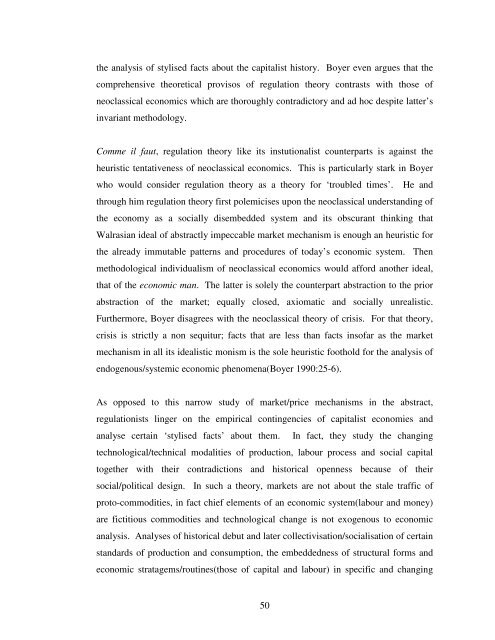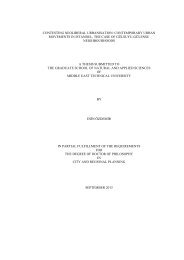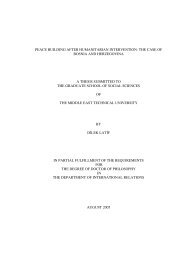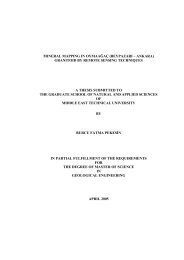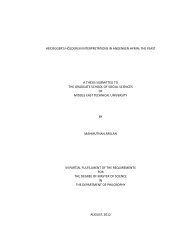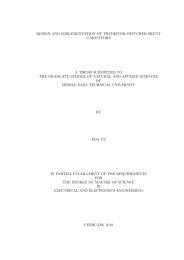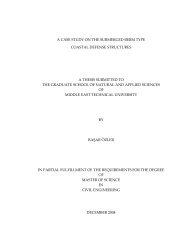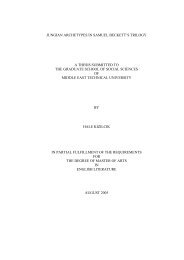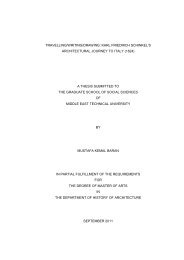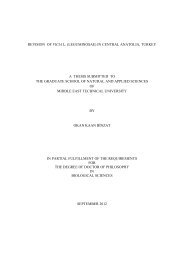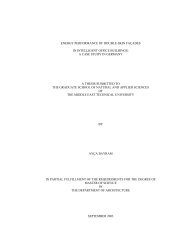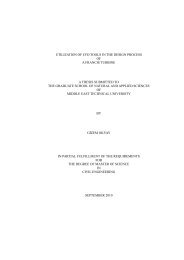View Original - Middle East Technical University
View Original - Middle East Technical University
View Original - Middle East Technical University
You also want an ePaper? Increase the reach of your titles
YUMPU automatically turns print PDFs into web optimized ePapers that Google loves.
the analysis of stylised facts about the capitalist history. Boyer even argues that the<br />
comprehensive theoretical provisos of regulation theory contrasts with those of<br />
neoclassical economics which are thoroughly contradictory and ad hoc despite latter’s<br />
invariant methodology.<br />
Comme il faut, regulation theory like its instutionalist counterparts is against the<br />
heuristic tentativeness of neoclassical economics. This is particularly stark in Boyer<br />
who would consider regulation theory as a theory for ‘troubled times’. He and<br />
through him regulation theory first polemicises upon the neoclassical understanding of<br />
the economy as a socially disembedded system and its obscurant thinking that<br />
Walrasian ideal of abstractly impeccable market mechanism is enough an heuristic for<br />
the already immutable patterns and procedures of today’s economic system. Then<br />
methodological individualism of neoclassical economics would afford another ideal,<br />
that of the economic man. The latter is solely the counterpart abstraction to the prior<br />
abstraction of the market; equally closed, axiomatic and socially unrealistic.<br />
Furthermore, Boyer disagrees with the neoclassical theory of crisis. For that theory,<br />
crisis is strictly a non sequitur; facts that are less than facts insofar as the market<br />
mechanism in all its idealistic monism is the sole heuristic foothold for the analysis of<br />
endogenous/systemic economic phenomena(Boyer 1990:25-6).<br />
As opposed to this narrow study of market/price mechanisms in the abstract,<br />
regulationists linger on the empirical contingencies of capitalist economies and<br />
analyse certain ‘stylised facts’ about them. In fact, they study the changing<br />
technological/technical modalities of production, labour process and social capital<br />
together with their contradictions and historical openness because of their<br />
social/political design. In such a theory, markets are not about the stale traffic of<br />
proto-commodities, in fact chief elements of an economic system(labour and money)<br />
are fictitious commodities and technological change is not exogenous to economic<br />
analysis. Analyses of historical debut and later collectivisation/socialisation of certain<br />
standards of production and consumption, the embeddedness of structural forms and<br />
economic stratagems/routines(those of capital and labour) in specific and changing<br />
50


